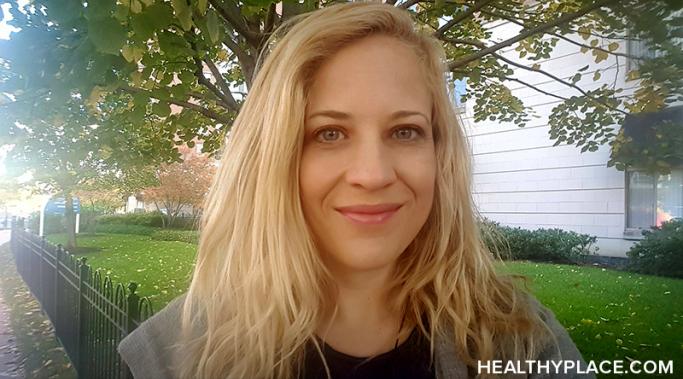Cold abuse, verbal abuse delivered without emotion, is familiar to many abuse victims. The film "I, Tonya," depicts the physically and verbally abusive home life of notorious Olympic skater Tonya Harding. Harding is best known for the scandal that took place in 1994 in which her husband, Jeff, carried out a plot to maim Nancy Kerrigan, her skating rival, prior to the winter Olympics that year. There is a scene in the film in which the teenaged Harding sits at the dining room table eating breakfast with her mother. She has a black eye, given to her by Jeff, her boyfriend at the time.
Verbal Abuse in Relationships
What is covert verbal abuse? When we hear the term “verbal abuse,” it’s easy to conjure up name-calling or demeaning comments spoken in anger. Verbal abuse isn’t always so obvious, however.
Verbal abuse and anger seem to go together. In fact, one common stereotype of abuse is that the abuser must have been angry when the behavior occurred. This makes sense because aggressive behavior is the easiest to see and understand. When it comes to verbal abuse, subtle psychological mind games are more difficult to pinpoint and explain than direct insults and putdowns.
There are many different forms of verbal abuse, and one that is often the easiest to spot is an abuser's insults or put-downs. My ex-boyfriend did not hold back, issuing demeaning comments or labels meant to attack specific things about me, my life, or the people in it so that I would feel bad about myself and change my behavior in some way. His words were direct hits either on things I liked about myself or on things I was insecure about. Either way, however, he used his knowledge about me gained through the closeness to me earned early in the relationship to try to hurt me using insults as a form of verbal abuse.
My name is Kristen Milstead and I am thrilled to be a new writer for HealthyPlace on Verbal Abuse in Relationships. I grew up confused about what verbal abuse was. I learned that it was okay for people to say abusive things as long as they also mixed in kind or loving statements, apologized later, or both. Not surprisingly, I started choosing boyfriends who ended up saying and doing abusive things to me. Not all my relationships were that way, but enough of them to call it a pattern.
How can abuse lead to suicidal thoughts? Men and women in the depths of an abusive relationship often find themselves considering options they never anticipated they would. Abuse can take otherwise happy, outgoing, social and optimistic people and beat them down into a shell of who they once were. Both physical and verbal attacks have the power to do this to a man or a woman. Read on to learn how abuse can lead to suicidal thoughts.
Signs your child is experiencing verbal abuse at school are important to recognize and respond to. School is back in session and so we send our babies, some in kindergarten and some in high school, off to their place of learning for six or so hours a day. It can be nerve-wracking to feel out of control and unsure of what is happening with our children for those hours, but keeping an eye on his or her at home behavior can be a good indicator of how he or she is being treated at school. Continue reading to learn more about possible signs that your child is experiencing verbal abuse in the classroom or on the playground.
Moving on from verbal abuse isn't easy. For a long time, I couldn't get past the verbal, emotional and sometimes physical abuse in my previous relationship because I hadn't confronted it. In practical terms, I moved on quickly. We didn't have any children, so I was able to move out of our home and get on with my life (minus a brief and horrible reunion, several abusive texts and some social media blocking). Within months, I met someone else and learned what a healthy relationship was supposed to look like. However, feeling safe and comfortable in my own skin after two years of psychological damage wasn't easy. Almost six years later, here's how I moved on from verbal abuse and why I'm leaving the Verbal Abuse in Relationships blog.
As anyone who has been in an abusive relationship will tell you, patterns of verbal abuse exist. These abusive patterns (combined with tactics like gaslighting and manipulation) create misplaced feelings of trust and codependency and keep survivors coming back for more. Statements like "you're being too sensitive" or "you're imagining things" can make the abusive cycle even more confusing, causing survivors of abuse to think the problem lies with them. If this sounds familiar, you could be in an abusive relationship. Here are five common patterns of verbal abuse to watch out for.
Dating red flags that reveal you're seeing an abusive person may not be so simple to spot, but once you see it, don't unsee it just for the sake of being happy. Have you ever heard someone ask, "Why would you date someone that is abusive?" It's a surprisingly common question that is usually answered with something along the lines of, "Well he wasn't abusive on the first date." Most people abusive in nature are actually quite charming and easy to fall for in the beginning stages of an abusive relationship which is why it's so important to keep an eye out for signs that a person has a likely potential for abuse. Dating red flags are waving for a reason: to warn you that danger and unhappiness may be ahead. Continue reading to learn about characteristics and behaviors to be wary of, why they are dangerous and how to spot them.









